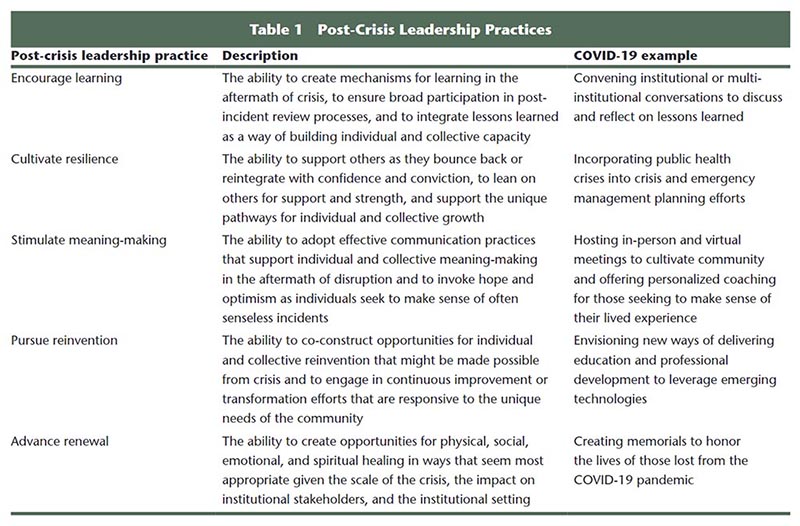
In a new study focused on post crisis leadership, SC&I Lecturer and alumnus Ph.D.’17 introduces five leadership practices he said are recognized as especially critical for post-crisis leadership: encourage learning; cultivate resilience; stimulate meaning-making; pursue reinvention; and advance renewal.
The study, "Leadership Generativity and the Social, Emotional, and Pragmatic Pivot from Crisis to Post-Crisis" was published in the Journal of Leadership Studies as part of a symposium held by the journal focused on the topic of leadership generativity.
Gigliotti, who is Assistant Vice President for Organizational Leadership in University Academic Affairs at Rutgers University and director of the Rutgers Office of Organizational Leadership, said the paper addresses “the importance of those engaged in leadership who can respond to the pressures of the moment and advance change that will contribute to individual and collective vitality during a time of widespread disruption and polarization across contexts. The article includes a synthesis of the findings in my new book on post-crisis leadership scheduled to be published by Rutgers University Press in November 2025. For this book, I introduce a research-informed framework for the study and practice of post-crisis leadership, with a specific focus on colleges and universities.”
Seen through the lens of the COVID-19 pandemic, this chart provides additional context regarding the five major practices detailed in the article (and in his forthcoming book):

As Gigliotti writes, “We find ourselves at a moment in time where individuals, organizations, and communities are responding to the waves of change imposed by global crises, while simultaneously advancing change that will help individuals and collectives to best survive and thrive in this dynamic ecosystem… The notion of generative leadership calls attention to the role of leaders in responding to the immediate needs of crises and helping to ensure the long-term success and sustainability of their organizations. Learning, growth, and healing are made possible in this shift, but such a pivot demands collaborative leadership, a prospective vision for the future, and a commitment to human dignity.”
Learn more about the Communication Department and the Ph.D. Program at the School of Communication and Information on the website.
